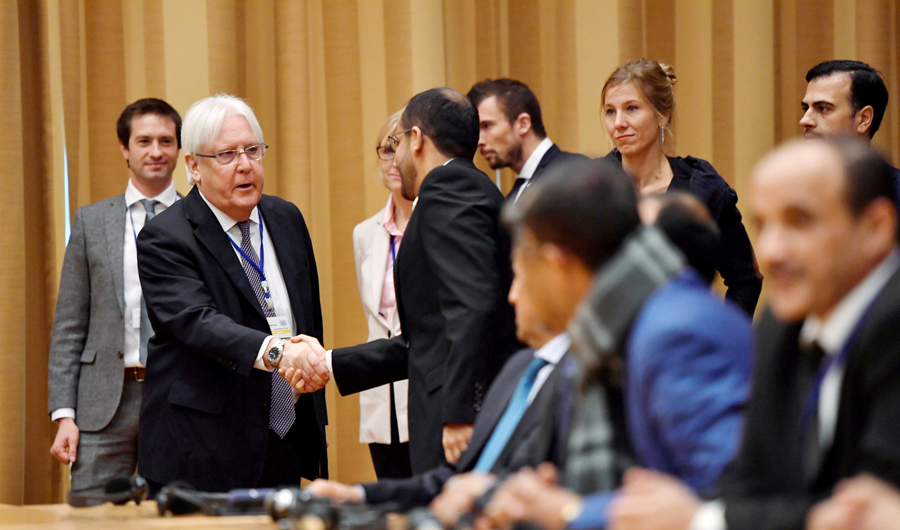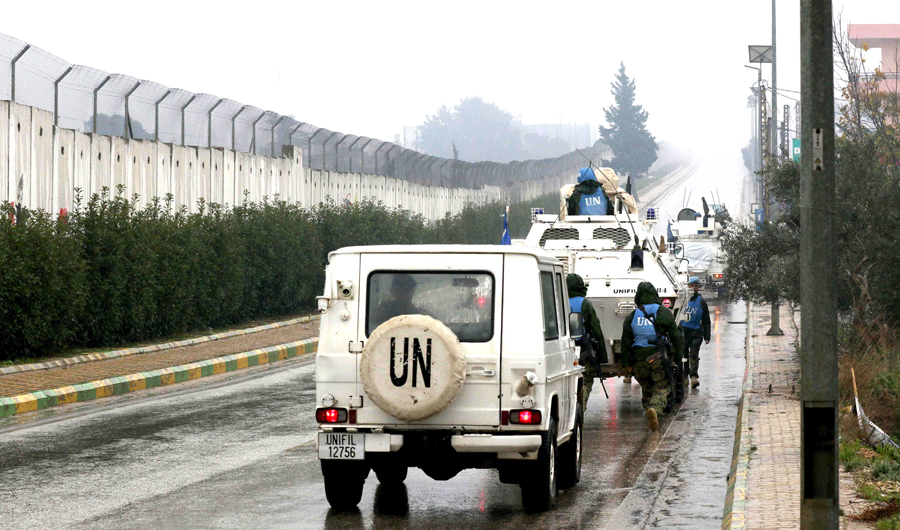Yemen talks ‘yielding results,’ shipping permits issued for essential goods
RIMBO, SWEDEN: Houthi delegates at talks underway in Sweden to try end their country’s ruinous civil war reported progress on Saturday on the key issues of reopening the airport at the capital, Sanaa, and the implementation of an agreement reached earlier this week on the exchange of prisoners.
UN special envoy to Yemen, Martin Griffiths, struck a positive note, saying in a brief statement read to reporters that the two sides were demonstrating a “positive spirit” in the talks, held at a castle in the town of Rimbo, north of Stockholm.
Yemen’s four-year conflict, which has pushed the country to the brink of famine, pits the country’s Iran-backed militants, known as Houthis, against Yemen’s internationally recognized government supported by an Arab coalition. The UN has long led a push to resolve the conflict but past attempts at constructive talks have led nowhere.
“The two parties are engaged in a serious and constructive way in discussing the details of confidence-building measures,” Griffiths said. “We hope we will achieve progress during this round of consultations.”
 On Sunday, the coalition fighting in Yemen said it had issued 17 permits for vessels carrying foodstuffs and petroleum products destined for Yemeni ports.
On Sunday, the coalition fighting in Yemen said it had issued 17 permits for vessels carrying foodstuffs and petroleum products destined for Yemeni ports.
Also speaking on Saturday, the third day of the talks, Houthi delegate Abdul-Malik Al-Hajjri said enough progress has been made on the airport issue that some “positive results” could be announced as early as Sunday.
“There was a wide-ranging discussion yesterday and today on the re-opening of Sanaa airport and, God willing, there will be some positive results tomorrow on a comprehensive scenario for the reopening of Sanaa airport,” he told a news conference.
He gave no details except that one proposal made by the militants was for Sanaa-bound aircraft to stop at another city in the region for inspection before they proceed to the Yemeni capital. He suggested Amman, Jordan’s capital, as a candidate for an inspection stopover.
The Houthis captured Sanaa in 2014, forcing the government into exile and plunging the impoverished Arab nation into civil war. With the Houthis in control of most of the country, a US-backed Arab coalition entered the war in March 2015 on the side of President Abed Rabbo Mansour Hadi’s government.
The Houthis now control the north of the country while the government side controls the south.
The war has killed tens of thousands and made Yemen the world’s worst humanitarian crisis with 22 of its 29 million people in need of aid, according to the UN.
The airport in militant-held Sanaa has been closed since August 2016 by order of the Arab coalition, leaving the militant-held north of Yemen heavily relying on the Red Sea port of Hodeida, which is controlled by the Houthis, for delivery of much-needed humanitarian aid and fuel supplies.
The two sides have for months been locked at a stalemated fight over Hodeida.
On the issue of the prisoner exchange, Al-Hajjri said the militants were prepared to release all of those they hold, provided the other side reciprocates. The two sides, however, agreed on incremental releases, with 200 prisoners from each side being simultaneously released. He did not say when that would start.
UN officials have sought to downplay expectations from the talks in Sweden, saying they do not foresee rapid progress toward a political settlement but hope for at least minor steps that would help to address Yemen’s worsening humanitarian crisis and prepare a framework for further negotiations.
Abdul-Majid Al-Hanash, another Houthi delegate, emphasized the importance of arriving at such a framework.
“In reality, what we came here for is to discuss the most important topics and that means agreeing on a framework for the political and security files,” he told Saturday’s news conference. “If put on the table, discussing these files will mean that we expect the battle and the war to end. This is the main objective.”

US wants to continue support for Arab coalition in YemenKSRelief steps up aid to war-torn Yemen



